The conflict in northern Nigeria has left thousands dead and forced more than a million to flee their homes. This truly regional conflict is one of the major humanitarian crises in the world today.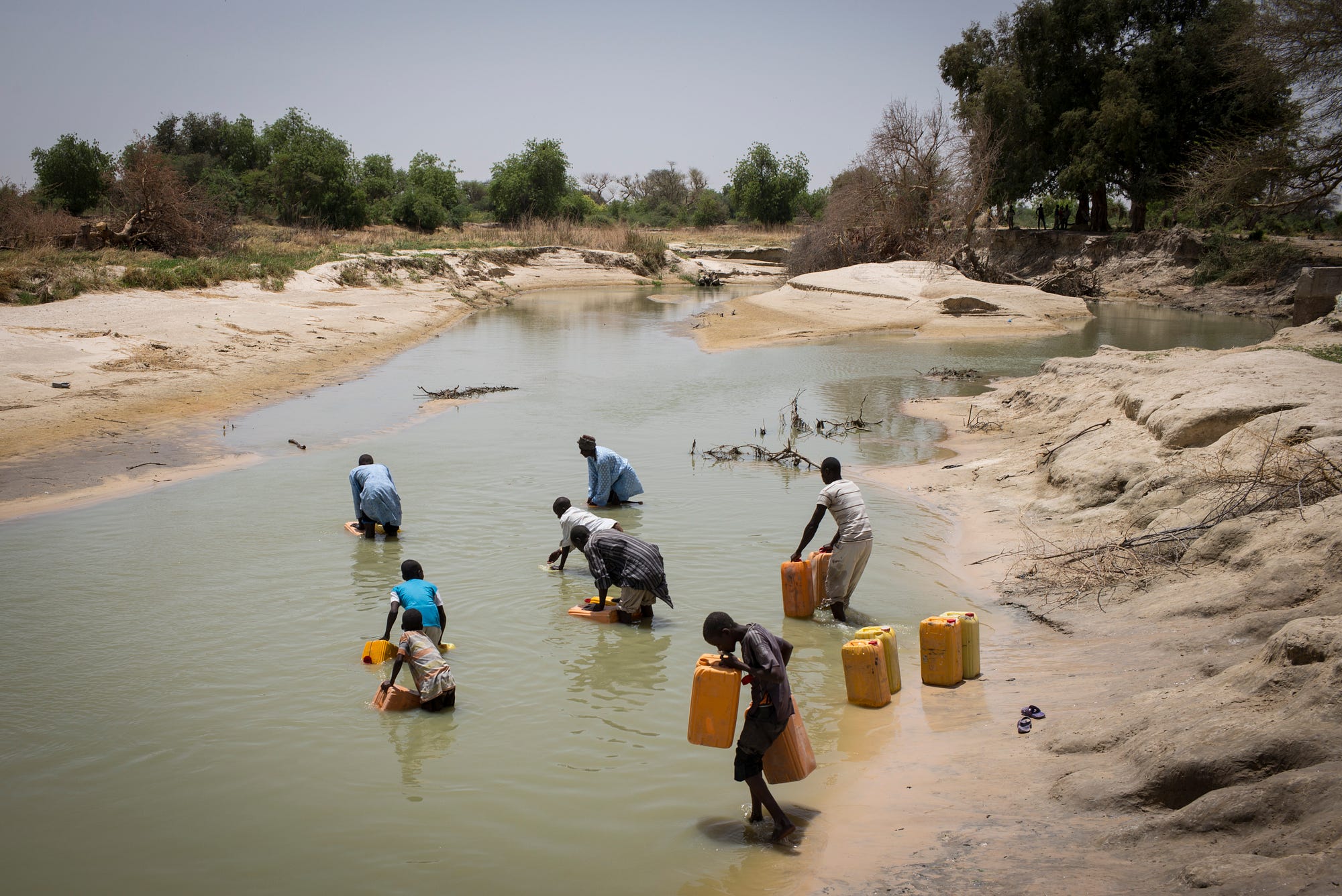 The Komadougou Yobé river forms a natural border between Nigeria and Niger. It also marks the dividing line between the rebels in north-eastern Nigeria and the people of Niger. Sylvain Cherkaoui/ICRC
The Komadougou Yobé river forms a natural border between Nigeria and Niger. It also marks the dividing line between the rebels in north-eastern Nigeria and the people of Niger. Sylvain Cherkaoui/ICRC
“They shouted, ‘Get up!’ and because nobody moved, they started shooting,” Mahamdou Ali remembers. One bullet hit the teenager in the back, another in the abdomen and a third went through someone else before settling in his foot. Now Ali’s foot is infected, and he fears doctors will have to amputate.
The conflict in northeast Nigeria hasn’t stopped at the border. In the Diffa region of neighbouring Niger, tens of thousands of refugees and displaced people are living in harsh conditions because of the regional violence. Many civilians have been killed in attacks since February 2015.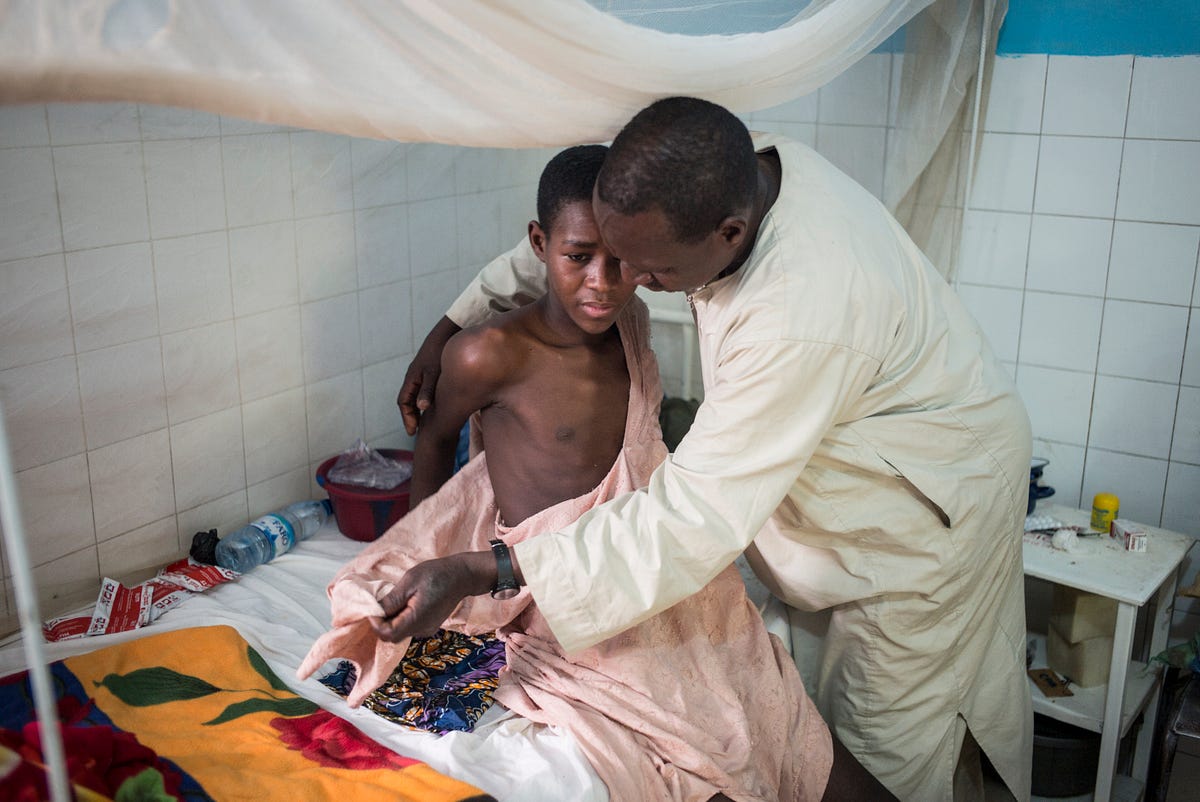 Mahamdou Ali’s father cares for him at the regional hospital, where he has been for four months due to injuries he sustained from an attack. Sylvain Cherkaoui/ICRC
Mahamdou Ali’s father cares for him at the regional hospital, where he has been for four months due to injuries he sustained from an attack. Sylvain Cherkaoui/ICRC
Ali was only 15 when Bla Brin, a village just outside Diffa, was attacked in December. He now lives in a camp for the displaced in Gagamari with his father.
“I’ve been by my son’s bedside for four months now. I can’t feed my family and I haven’t received any assistance in a long time.”
Local communities — already struggling with economic hardship and a series of droughts — are finding it hard to cope. Once thriving cross-border trade with Nigeria has collapsed and agricultural output has plummeted as families have been forced to flee to safety.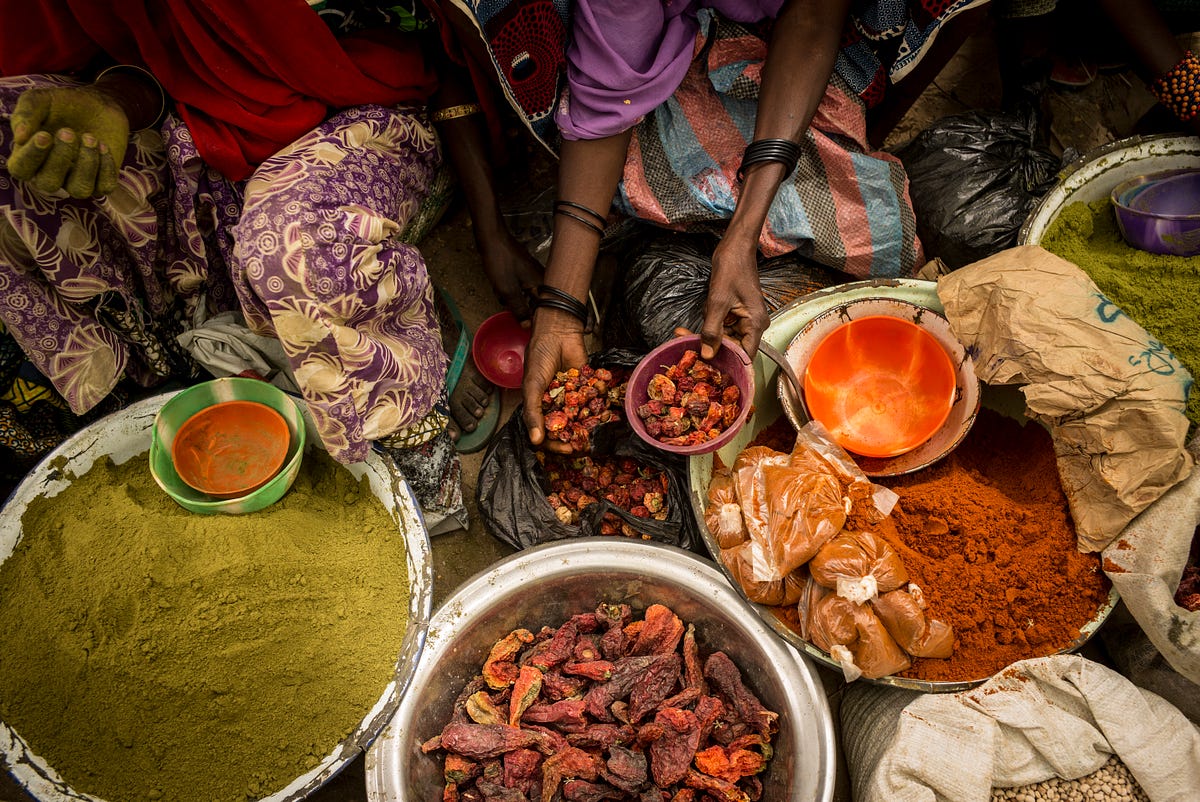 Dried peppers were commonly sold at the market in Diffa, but the conflict has severely hampered production and sales. Sylvain Cherkaoui/ICRC
Dried peppers were commonly sold at the market in Diffa, but the conflict has severely hampered production and sales. Sylvain Cherkaoui/ICRC
Awa Tidjani’s husband — a Muslim preacher — lived in Diffa until he was kidnapped in 2013. She hopes his religious affiliation has protected him. “They’ve probably kept him (alive) to lead prayers,” she says. Her neighbours were supportive at first, but since violent attacks hit Niger last year, the mother of two has become stigmatized. “People think my husband has joined,” she said, referring to the armed opposition. Her son and brother are imprisoned on suspicion of being members themselves.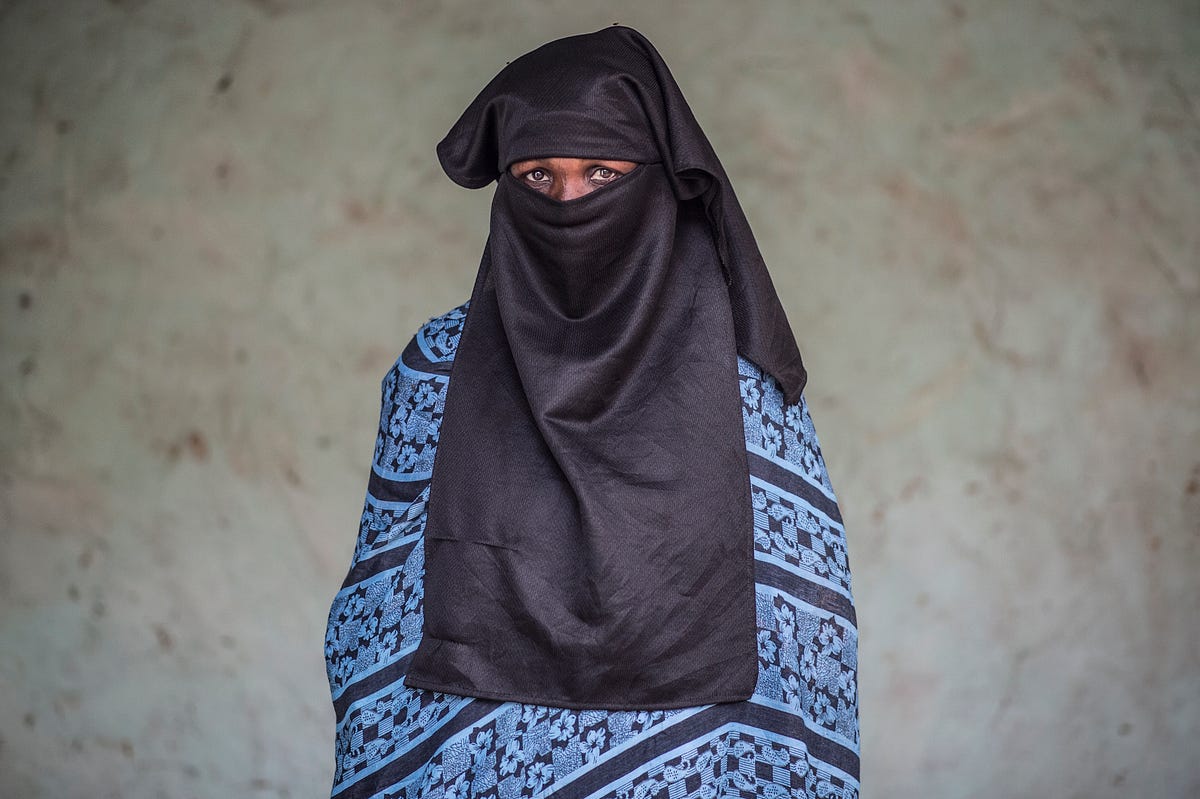 Awa Tidjani’s husband was kidnapped in 2013, and she still has hope that he is alive and will return. Sylvain Cherkaoui/ICRC
Awa Tidjani’s husband was kidnapped in 2013, and she still has hope that he is alive and will return. Sylvain Cherkaoui/ICRC
They’ve got nothing to do with the armed opposition, she insists. But a lot of young people do leave to join them. They do it in secret; their families can’t do anything about it. “Some leave to make money; they hope to come back rich,” Tidjani said.
Imam Aboubacar Mala Adji is a 35-year-old preacher. In his mosque in Diffa he preaches three times a week against the violence and temptation to join the fighting.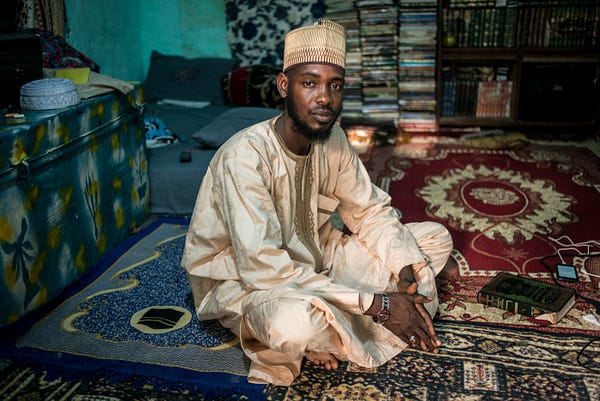 Imam Aboubacar Mala in Diffa. Sylvin Cherkaoui/ICRC
Imam Aboubacar Mala in Diffa. Sylvin Cherkaoui/ICRC
“I hope (they) hear my sermons and pass on the message of peace. I know that I’ve persuaded some of them.”
Adji was one of 11 imams who took a stand against the violence in Maiduguri, Nigeria, where he used to live. Seven of the 11 have been killed.
The ICRC and Red Cross Society of Niger have been assisting people on the ground since the start of the crisis. In 2015, the ICRC provided emergency food aid to over 100,000 people in Niger. So far this year over 75,000 people have received food aid. But the needs are staggering, and the situation is only getting worse.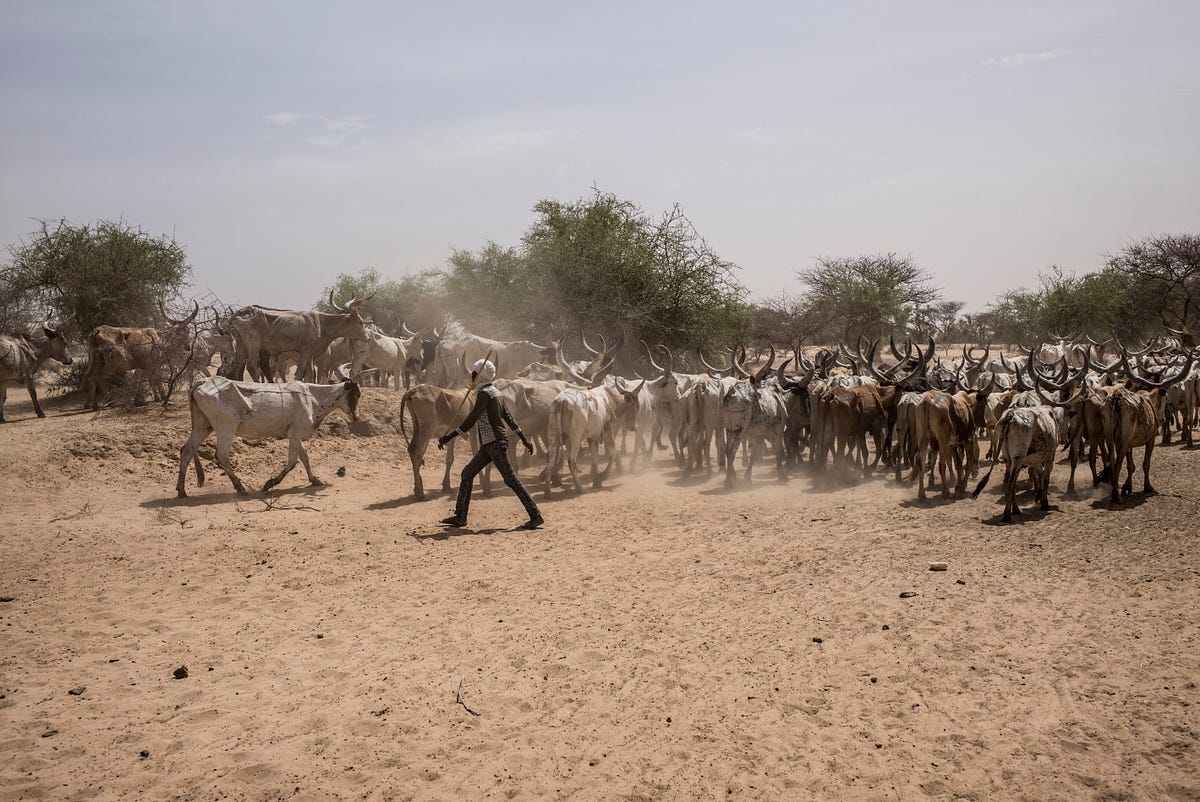 Herders usually take their cattle across the border to Chad or Nigeria to find fresh pasture during periods of drought, but the conflict is forcing them to stay in Niger.
Herders usually take their cattle across the border to Chad or Nigeria to find fresh pasture during periods of drought, but the conflict is forcing them to stay in Niger.
Too many people here are trapped by violence. Kondo Issa has his herd of cows in a dry river bed in Niger. “We should be in Nigeria at this time of the year,” he said. “A lot further south, but we’re stuck here because of the fighting.”
![]()
































